45 in semantic segmentation pixel labels
Semantic Segmentation; A brief overview - KlearStack AI Semantic segmentation is the process where we classify each pixel of an image that belongs to a particular label/ class. There is no difference between separate instances of the same object. For example, if the image contains two apples, semantic segmentation will give all pixels of both apples the same name. Instance Segmentation Semantic segmentation data labeling and model training using Amazon ... In computer vision, semantic segmentation is the task of classifying every pixel in an image with a class from a known set of labels such that pixels with the same label share certain characteristics. It generates a segmentation mask of the input images. For example, the following images show a segmentation mask of the cat label.
Semi-Supervised Semantic Segmentation Using Unreliable Pseudo-Labels The crux of semi-supervised semantic segmentation is to assign adequate pseudo-labels to the pixels of unlabeled images. A common practice is to select the highly confident predictions as the pseudo ground-truth, but it leads to a problem that most pixels may be left unused due to their unreliability.

In semantic segmentation pixel labels
Scribble-Supervised Semantic Segmentation Inference This paper proposes a framework with only image-level supervision that unifies semantic segmentation and object localization with important proposal aggregation and selection modules that greatly reduce the notorious error accumulation problem that commonly arises in weakly supervised learning. 116 PDF Context Encoding for Semantic Segmentation Beginner's Guide to Semantic Segmentation [2022] Semantic Segmentation in V7 The goal is simply to take an image and generate an output such that it contains a segmentation map where the pixel value (from 0 to 255) of the iput image is transformed into a class label value (0, 1, 2, … n). An overview of the Semantic Image Segmentation process Semi-Supervised Semantic Segmentation Using Unreliable Pseudo-Labels The crux of semi-supervised semantic segmentation is to assign adequate pseudo-labels to the pixels of unlabeled images. A common practice is to select the highly confident predictions as the pseudo ground-truth, but it leads to a problem that most pixels may be left unused due to their unreliability. We argue that every pixel matters to the ...
In semantic segmentation pixel labels. Diagnostics | Free Full-Text | Semantic Segmentation of Maxillary Teeth ... Semantic segmentation of teeth and rugae is challenging because of the variable sizes of the labels. The relatively larger size of the rugae label compared with the labels of individual teeth could skew the results of the network training. ... The goal of the segmentation was to label each pixel of the intraoral 2D image with the corresponding ... Semantic Segmentation Overview | Haobin Tan Image segmentation is a computer vision task in which we label specific regions of an image according to what's being shown. The goal of semantic image segmentation is to label each pixel of an image with a corresponding class of what is being represented. Because we're predicting for every pixel in the image, this task is commonly referred ... A pixel-level coarse-to-fine image segmentation labelling algorithm ... A fine label is a pixel-precise label that is used in general artificial neural network training. Using tools like LabelMe 44, semantic segmentation labels can be created for multiple categories ... What Is Instance Segmentation? [2022 Guide & Tutorial] Semantic Segmentation takes the input image and marks every pixel in the image to category class. Thus all instances of a particular category receive the same label. In Instance Segmentation, bounding boxes are generated for each instance of multiple categories present along with the object segmentation masks.
Don't Miss A Pixel with Semantic Segmentation Pixel Enforcement When it comes to semantic segmentation you strive for pixel-perfect accuracy, and this can become quite a complicated task. For example, with occluded objects. ... The more labels you're talking ... Scientists create algorithm to assign a label to every pixel in the ... Scientists create algorithm to assign a label to every pixel in the world, without human supervision by Rachel Gordon, Massachusetts Institute of Technology Unsupervised semantic segmentation predictions on the "CocoStuff 27" segmentation challenge. STEGO does not use labels to discover and segment consistent objects. Semantic Segmentation Using Pixel-Wise Adaptive Label Smoothing via ... Here, we propose a new regularization method called pixel-wise adaptive label smoothing (PALS) via self-knowledge distillation to stably train semantic segmentation networks in a practical... In-depth Guide to Semantic Segmentation - AIMultiple Semantic segmentation is an image segmentation method that assigns every single pixel in an image belonging to an object. It is only dealing with pixels, classifies each pixel in an image with a class label such as dog, person, cat, etc. Source: Stanford What is the difference between semantic segmentation and instance segmentation?
Semantic vs. Instance vs. Panoptic Segmentation - PyImageSearch Semantic segmentation studies the uncountable stuff in an image. It analyzes each image pixel and assigns a unique class label based on the texture it represents. For example, in Figure 1, an image contains two cars, three pedestrians, a road, and the sky. The two cars represent the same texture as do the three pedestrians. [2203.14335] Deep Hierarchical Semantic Segmentation - arXiv.org Existing work is often aware of flatten labels and predicts target classes exclusively for each pixel. In this paper, we instead address hierarchical semantic segmentation (HSS), which aims at structured, pixel-wise description of visual observation in terms of a class hierarchy. Semantic Segmentation Using Pixel-Wise Adaptive Label Smoothing via ... Semantic Segmentation Using Pixel-Wise Adaptive Label Smoothing via Self-Knowledge Distillation for Limited Labeling Data by Sangyong Park 1, Jaeseon Kim 1 and Yong Seok Heo 1,2,* 1 Department of Electrical and Computer Engineering, Ajou University, Suwon 16449, Korea 2 Department of Artificial Intelligence, Ajou University, Suwon 16449, Korea * 2D Semantic Labeling - International Society for Photogrammetry and ... Focus is on detailed 2D semantic segmentation that assigns labels to multiple object categories. Further research drivers are very high-resolution data from new sensors and advanced processing techniques that rely on increasingly mature machine learning techniques. Despite the enormous efforts spent, these tasks cannot be considered solved, yet.
Instance Segmentation Vs. Semantic Segmentation | Baeldung on Computer ... In semantic segmentation, all the objects that belong to the same class share the label. So, if we're working with autonomous vehicle applications, all pedestrians will receive the same label. The same goes for cars. For instance: 3.1. SegNet In both semantic and instance segmentations, deep-learning methods have achieved the best performance.
Diffraction pattern recognition using deep semantic segmentation Semantic segmentation associates a class label (e.g., diffraction) with a group of pixels. With pixel-to-pixel training, one is able to delineate regions around diffractions including their tails when the noise level is rather high. ... Considering that we had only one label per inline, and the width of the pixels region that defines ...
(SP)Net for Generalized Zero-Label Semantic Segmentation In generalized zero-label semantic segmentation (GZLSS) [ 5, 11, 19, 31 ], the goal is to make pixel-level predictions for both seen classes with abundant labels and novel classes without any label. Prior methods mainly focus on learning feature generators [ 5, 11, 19] or a semantic projection layer [ 31 ].
Semi-Supervised Semantic Segmentation Using Unreliable Pseudo-Labels ... The crux of semi-supervised semantic segmentation is to assign adequate pseudo-labels to the pixels of unlabeled images. A common practice is to select the highly confident predictions as the pseudo ground-truth, but it leads to a problem that most pixels may be left unused due to their unreliability.
Semantic Segmentation with SegFormer | by Praneet Bomma - Medium We have the labels CSV which can be used for plotting the colors on the segmented image. classes = pd.read_csv ('class_dict_seg.csv') ['name'] id2label = classes.to_dict () label2id = {v: k for k,...
Guided Filter Network for Semantic Image Segmentation Guided Filter Network for Semantic Image Segmentation Abstract: The existing publicly available datasets with pixel-level labels contain limited categories, and it is difficult to generalize to the real world containing thousands of categories.
What exactly is the label data set for semantic segmentation using FCN? In semantic segmentation, the label set semantically. Which mean every pixels have its own label. For example, we have 30x30x3 image dimensions, so we will have 30x30 of label data. Every pixels in...
Erroneous pixel prediction for semantic image segmentation (Journal ... This content will become publicly available on March 1, 2023. Erroneous pixel prediction for semantic image segmentation
Multi-Layer Pseudo-Supervision for Histopathology Tissue Semantic ... The basic idea of this model is to use patch-level classification labels to automatically generate pixel-level semantic segmentation masks, and then use the generated pseudo masks to train a semantic segmentation model. Our proposed model contains a classification phase and a segmentation phase.
Exploiting semantic segmentation to boost reinforcement learning in ... One of the problems of semantic segmentation is that the image labeling process required to generate ground-truth data for training is a highly time-consuming task, as it requires to manually label each pixel. For this reason, semantic segmentation datasets usually have a limited amount of images.
Learning From Pixel-Level Label Noise: A New Perspective for Semi ... Abstract: This paper addresses semi-supervised semantic segmentation by exploiting a small set of images with pixel-level annotations (strong supervisions) and a large set of images with only image-level annotations (weak supervisions). Most existing approaches aim to generate accurate pixel-level labels from weak supervisions.
Semi-Supervised Semantic Segmentation Using Unreliable Pseudo-Labels The crux of semi-supervised semantic segmentation is to assign adequate pseudo-labels to the pixels of unlabeled images. A common practice is to select the highly confident predictions as the pseudo ground-truth, but it leads to a problem that most pixels may be left unused due to their unreliability. We argue that every pixel matters to the ...
Beginner's Guide to Semantic Segmentation [2022] Semantic Segmentation in V7 The goal is simply to take an image and generate an output such that it contains a segmentation map where the pixel value (from 0 to 255) of the iput image is transformed into a class label value (0, 1, 2, … n). An overview of the Semantic Image Segmentation process
Scribble-Supervised Semantic Segmentation Inference This paper proposes a framework with only image-level supervision that unifies semantic segmentation and object localization with important proposal aggregation and selection modules that greatly reduce the notorious error accumulation problem that commonly arises in weakly supervised learning. 116 PDF Context Encoding for Semantic Segmentation



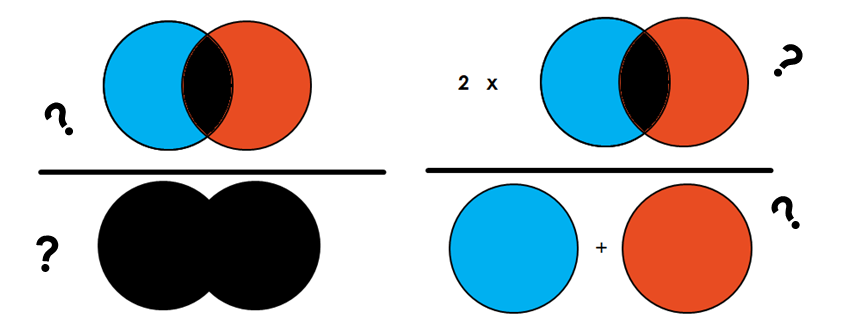
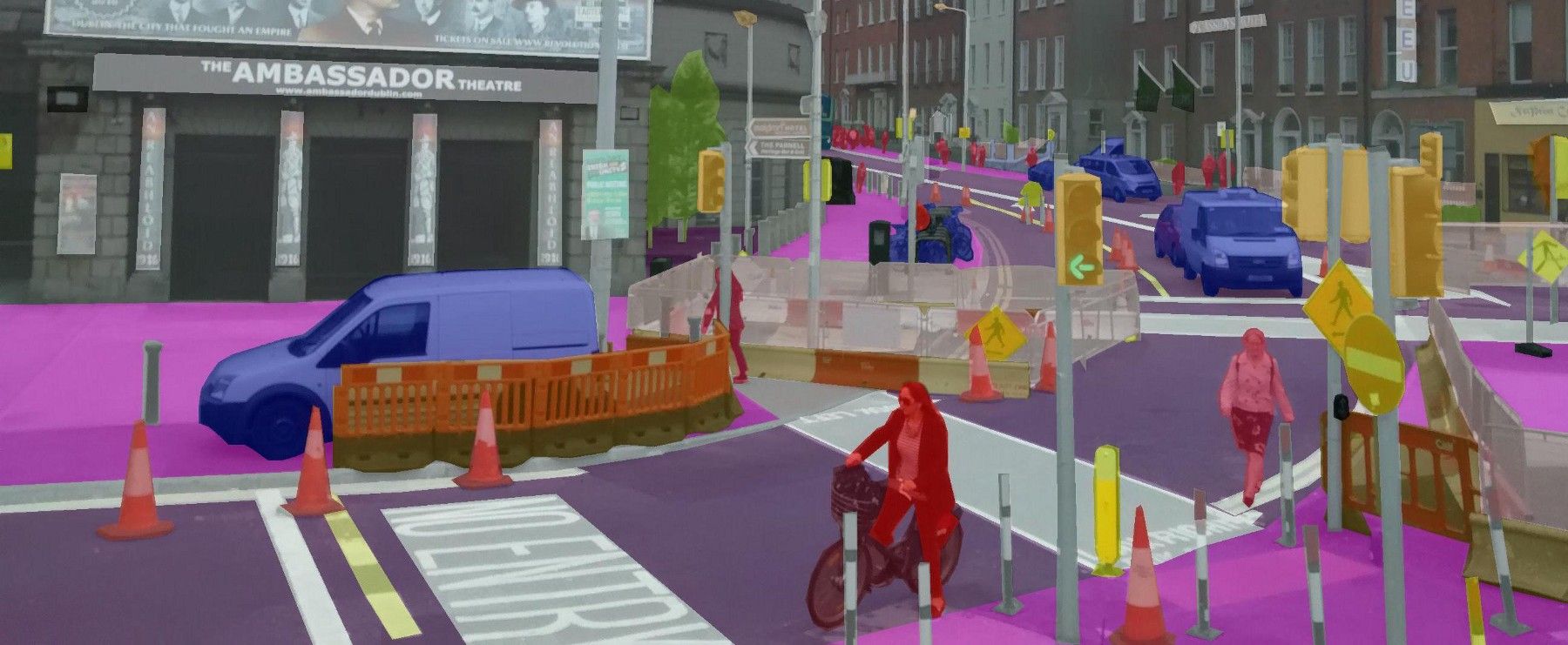






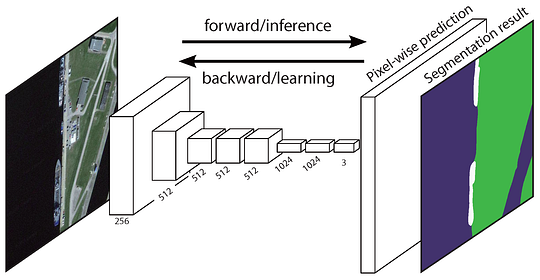


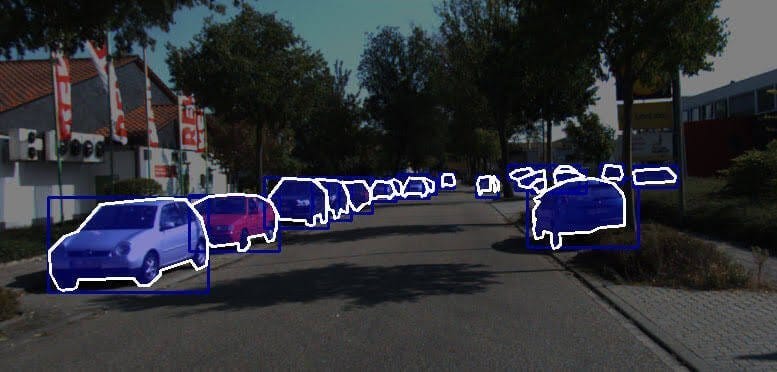
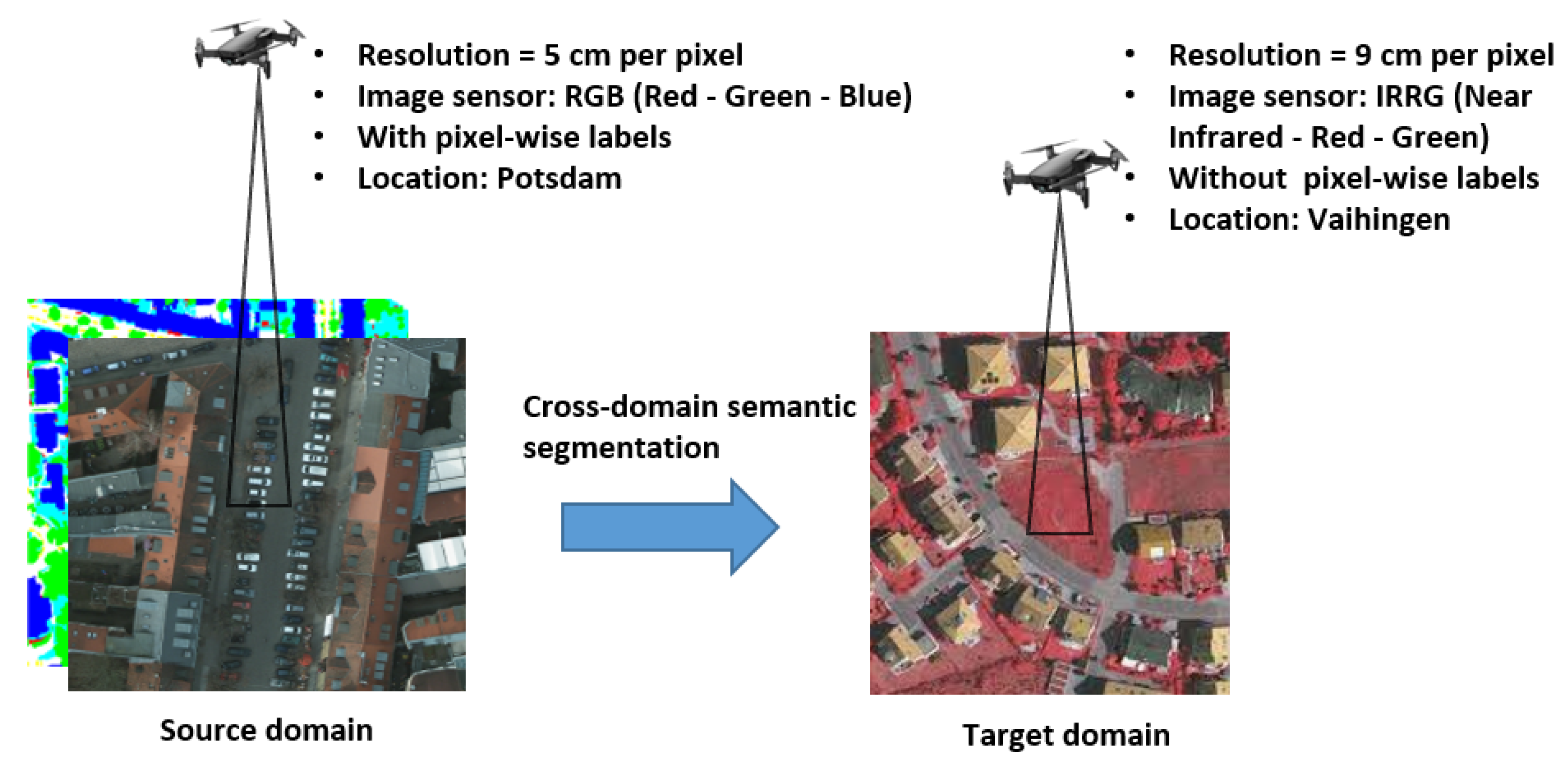
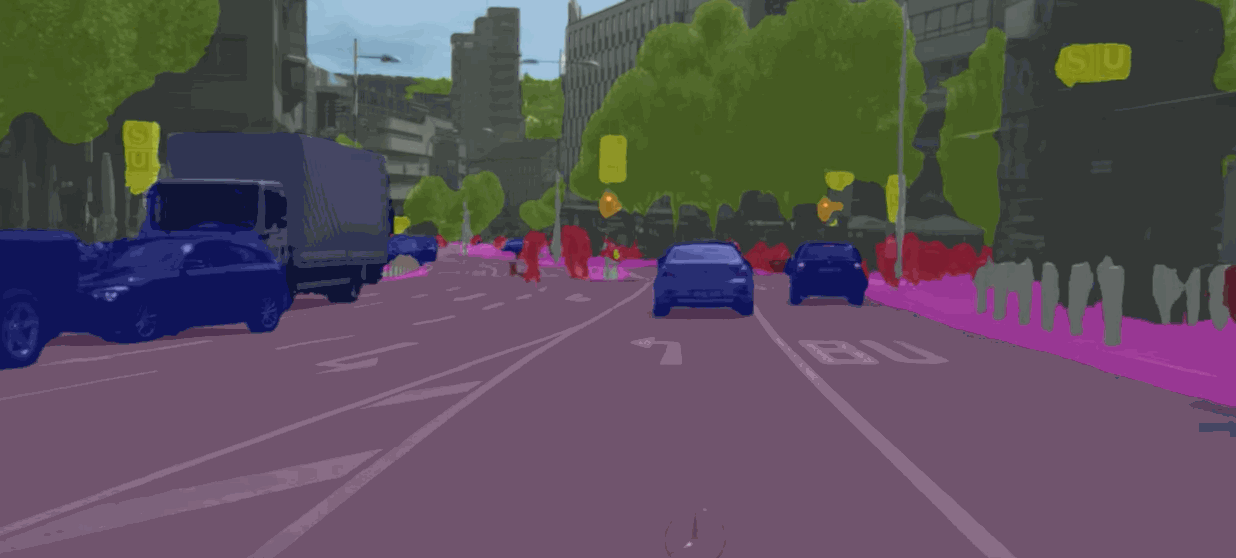





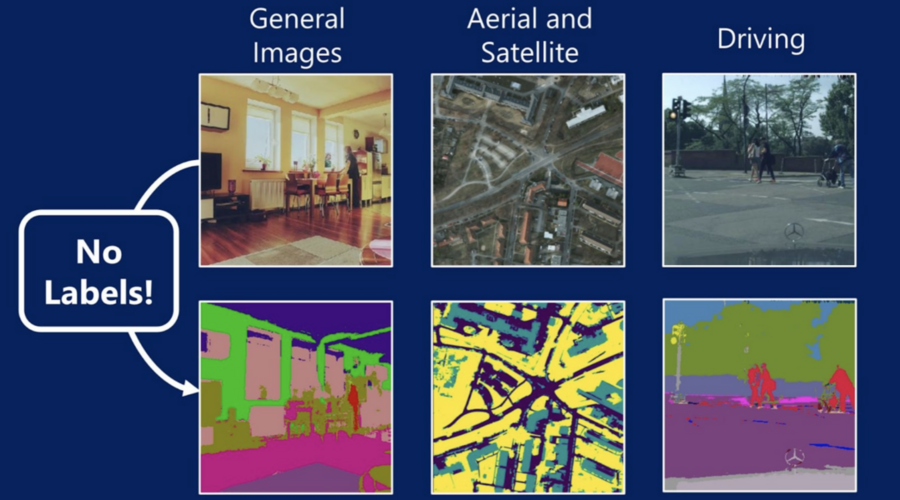
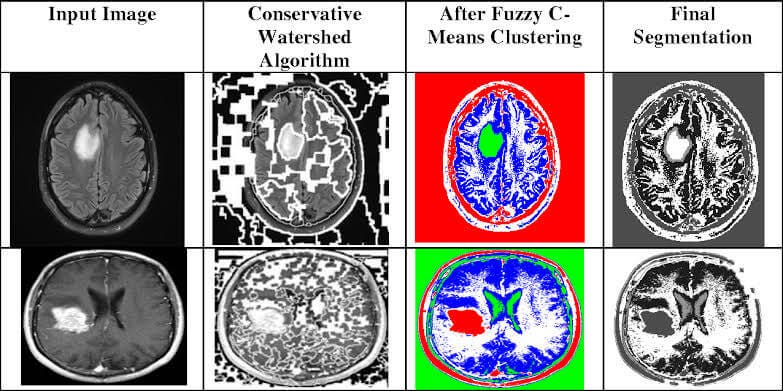







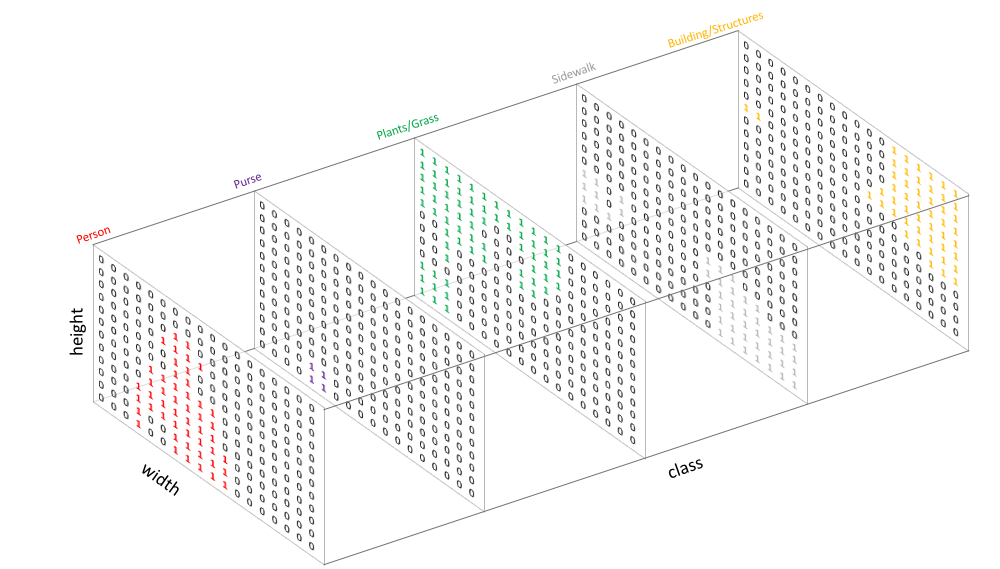
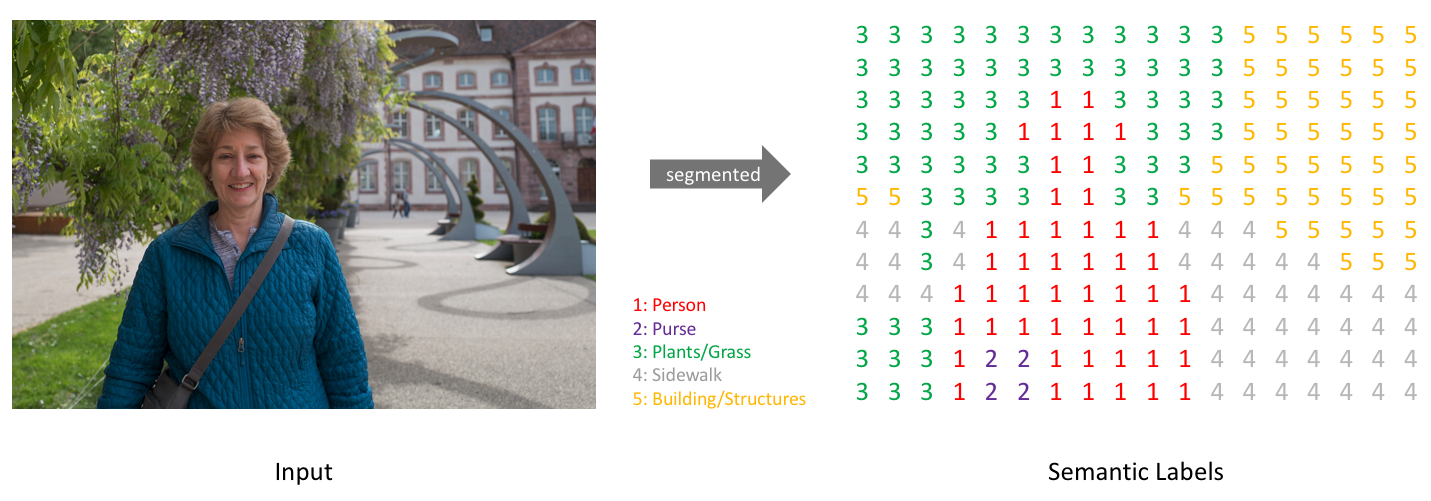
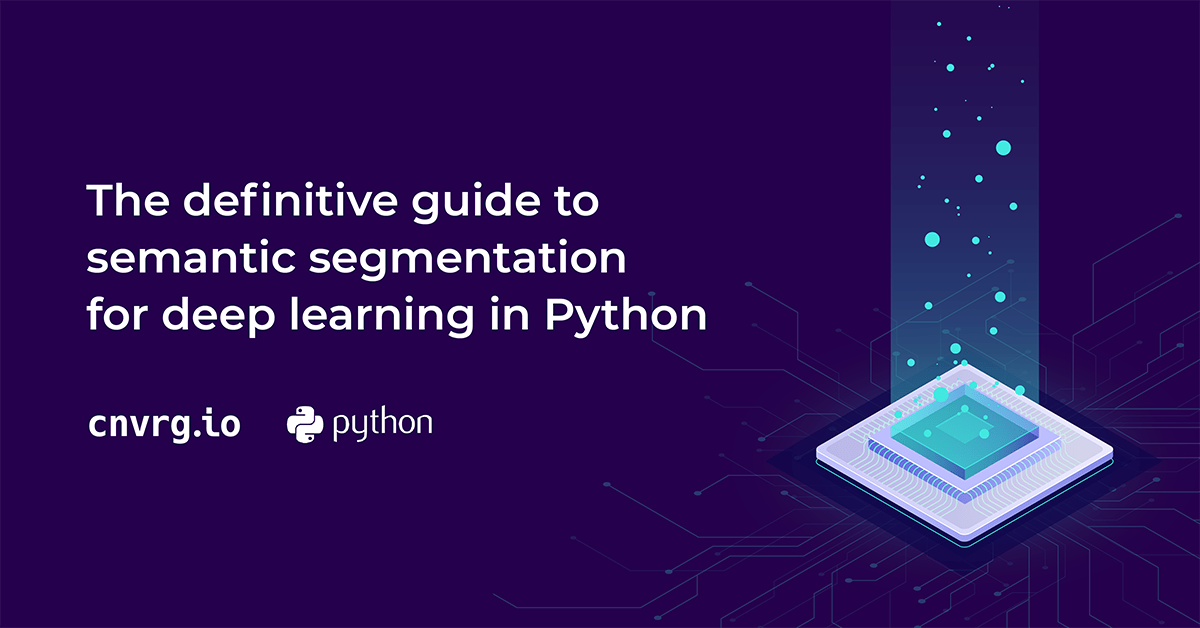

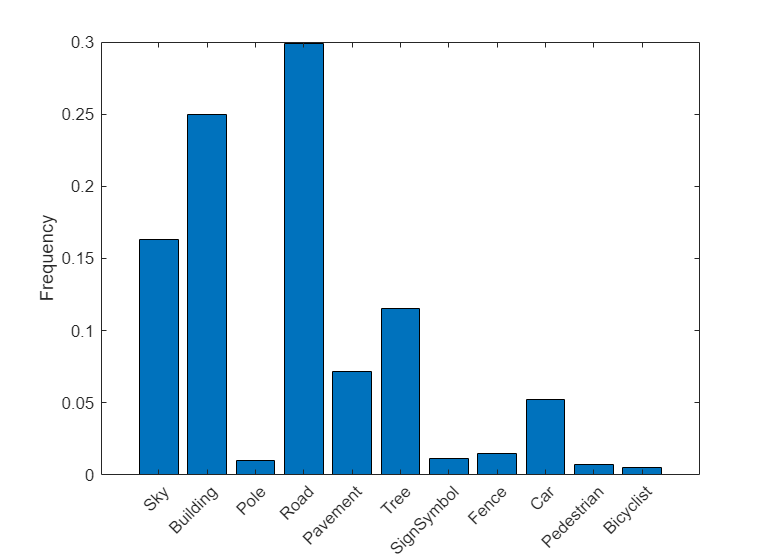

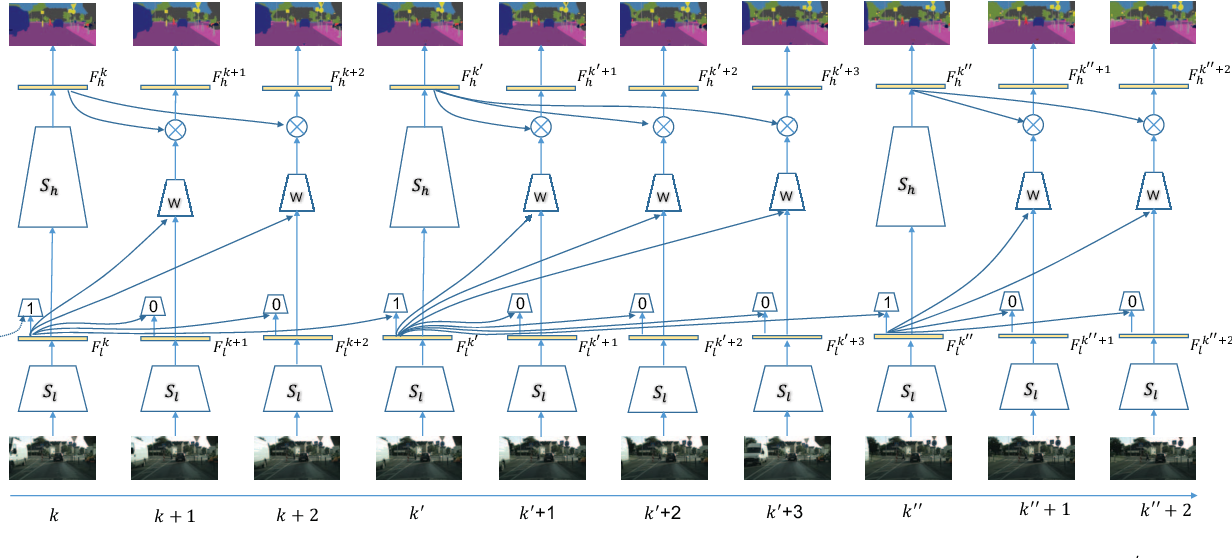
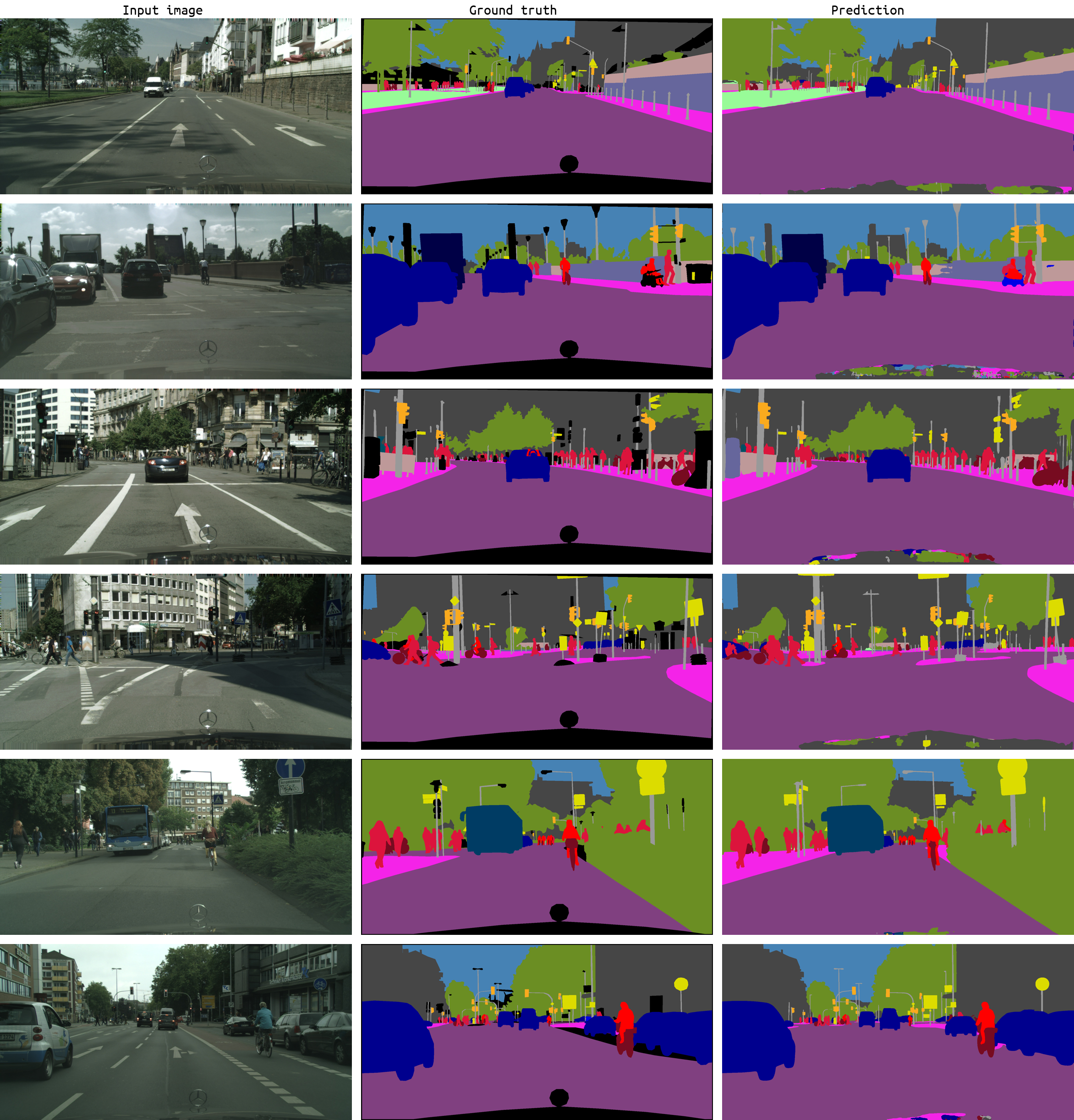
Post a Comment for "45 in semantic segmentation pixel labels"